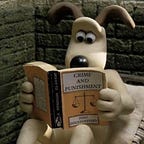Design Fiction, Speculative Design, Artistic research (My presentation)
Mandatory texts
Auger, James. 2012. “Speculative design: The products that technology could become”. In Why Robot? Speculative Design, the domestication of technology and the considered future. PhD Thesis. RCA, London.
Wakkary, Ron & Odom, William & Hauser, Sabrina & Hertz, Garnet & Lin, Henry. 2016. A short guide to material speculation: Actual artifacts for critical inquiry. interactions. 23. 44–48.
Additional readings
Dunne, Anthony and Raby, F. 2001. Design Noir: The Secret Life of Electronic Objects. August / Birkhäuser.
Tsaknaki, Vasiliki & Fernaeus, Y. 2016. “Expanding on Wabi-Sabi as a Design Resource in HCI”. In Proceedings of CHI ‘16.
Edmond, Ernest A. 2014. “Human Computer Interaction, Art and Experience”. In Candy, Linda & Ferguson, S. (eds.). Interactive Experience in the Digital Age. Evaluating New Art Practice. Springer.
Shedroff, N. 2012. Make it So. Rosenfeld Media.
Kakalios, James. 2005. The Physics of Superheroes. The Gotham Books Publishing Group.
Presentation structure
Design Fiction: Definition
Design Fiction: Examples
Value
Drawbacks
Exercise
Discussion
Design Fiction: Definition
- Exploring design through fiction
- Initially coined by Bruce Sterling in 2005 (science fiction writer)
- Design fiction = “the deliberate use of diegetic* prototypes to suspend disbelief about change” (Bruce Sterling)
- diegetic = contextually consistent within its own world
- The word “diegetic” is really important here: by focusing on objects, technologies, how they might function in the world you’re creating, you are designing a world
- science fiction: oxford dictionary definition = “fiction based on imagined future scientific or technological advances and major social or environmental changes”
- The meaning of the term has changed overtime
- Nowadays it refers to technological futures as told through media, especially video
- There is a huge amount of overlap between all these different terms
- Key difference between speculative design and design fiction: design fiction is not inherently critical
- A piece of design fiction can also be speculative design, it is both design and art, etc
- Speculative design is inherently critical vs design fiction, which is not
- The term “fiction” implies that it is, in fact, not real which sets it apart
Design Fiction: Examples
- Some past examples of design fiction that turned out to show us what was to come:
- Star Trek communicator: first appearance in 1964, before anything like a mobile phone was invented
- Exactly 30 years later (1996) Motorola showed the first flip phone
- 2001: A Space Odyssey (1968) featured a device that looks suspiciously like an iPad as well as video communication
- Fun fact: back in 2011 Apple filed a lawsuit against Samsung for infringing on its patents for the iPad design, then a lawyer from Samsung argued in court with this exact example that Apple was hardly the first company to design a flat tablet. This argument was later dismissed
- Goes to show how fiction and pop culture can shape our understanding of what modern technology is supposed to look like, even subconsciously
- Design fiction is rich in the science-fiction genre: choosing an unknown future as a setting forces writers to think about the technologies that might be present
- Interface makers in sci-fi are doing the same thing as the ones in real life: creating new interfaces
- In a way, all new / innovative design is fiction or speculation
- One more recent example that is more on the design than fiction side: SOULAJE (2015)
- “What if elderly people that live alone could choose their own time of death?”
- Developed as part of the project “ProtoPolicy” by a number of UK design studios and political groups, in a series of workshops with older people communities
- Used design fiction to build an understanding of and propose future scenarios surrounding ageing, for this they developed a number of prototypes
- Soulaje is a self-administered euthanasia wearable
- Allows elderly people to choose the time of their death
Value
- “Our fictions are glitchy, strange, disruptive, and hint at other places, times, and values.” Rather than basing these design fictions too much on real, existing things, through fiction we can explore scenarios that are really out there
- Real world innovations or paradigm shifts as a consequence
- Existing problems and biases in design can be uncovered through these ideas and discussions
- For example, machine learning algorithms carry implicit biases, social or racial biases
- BECAUSE it is on the border of science fiction and actual science / design
- Design situated in the real world has to follow existing guidelines, breaking through these existing systems and differences of power can be hard, so instead designing for a more ideal future world can be a way to bypass this
Drawbacks
- Limited number of scenarios that can be explored, we are unfortunately limited by our own imagination
- Often we overlook important ideas about the future, we can’t predict everything
- Same as with the positives, if you carry implicit biases that you maybe don’t question, you will reproduce them in your own work
- There are no defined formal methods to aid the ideation process
- Rarely critical of technological progress, rather celebratory
Exercise
Take your notes from Loïc’s “What if?” exercise. Choose one if you have multiple ideas. How could this product look? Please make a sketch or build a quick prototype with the materials you have.
Discussion question
- How could you use speculative design / design fiction in your practice as an interaction designer? What could be the limitations of these methods?
Notes from the class
Loic’s exercise:
- What if people could communicate telepathically through an implanted device?
- What if we could communicate through brainwaves rather than any technological devices?
- What if there was a way to communicate without having to formulate sentences?
